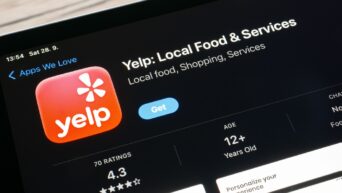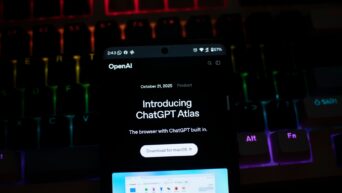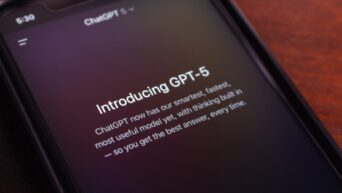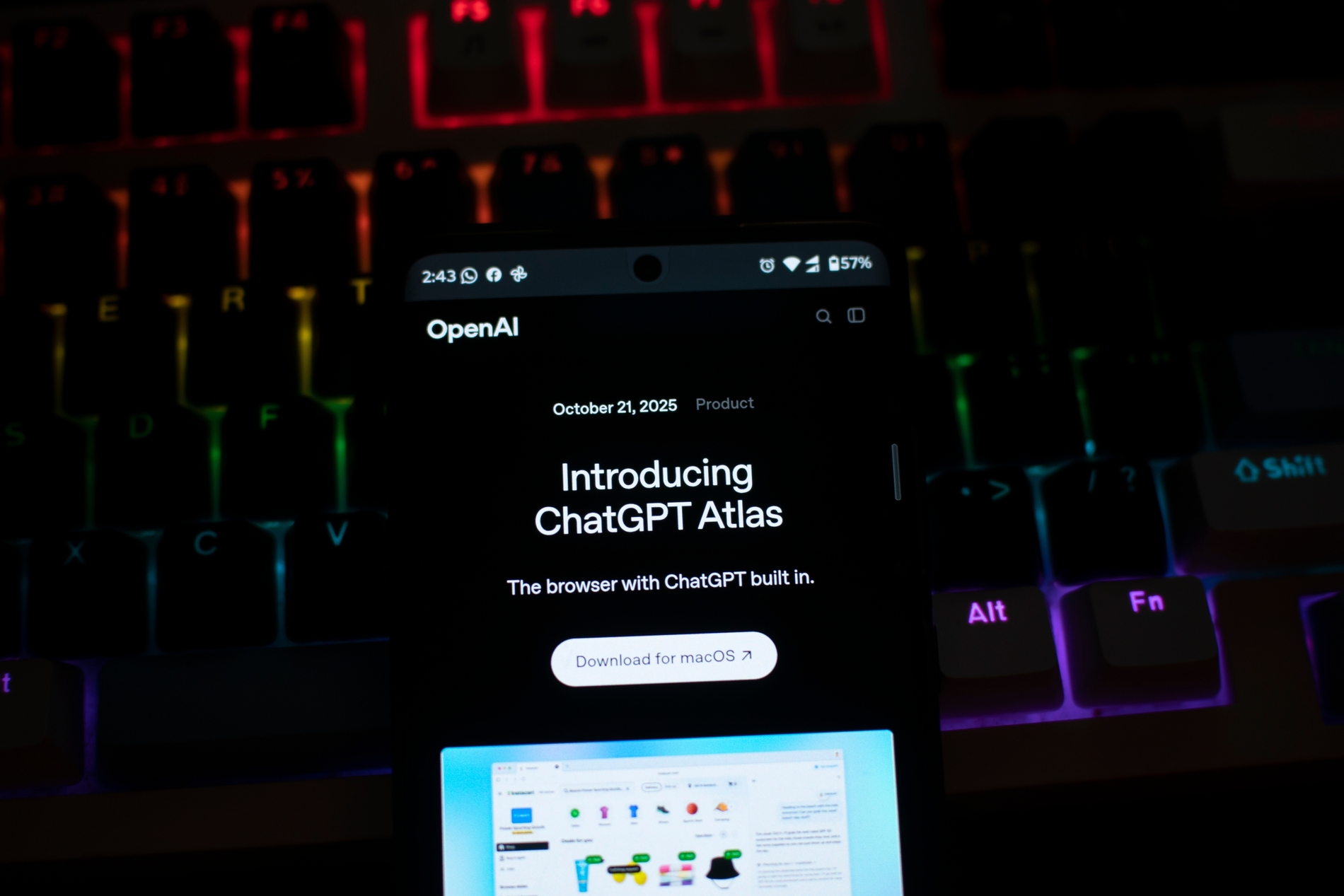OpenAI just launched an AI powered browser that promises to revolutionize web surfing but the reality comes with surprising limitations that Chrome users need to know about.
OpenAI announced ChatGPT Atlas on October 21, 2025, as its first web browser with ChatGPT integrated directly into the browsing experience. Currently available only on macOS, the browser promises versions for Windows, iOS, and Android coming soon.
At first glance, Atlas looks remarkably similar to Google Chrome. Both are built on Chromium, so the interface feels immediately familiar. The game changing difference? A ChatGPT sidebar that sits ready to assist with everything happening in the browser. Instead of traditional Google search, users get ChatGPT’s search bar with AI powered suggestions for research topics or tasks like planning weekend trips.
The browser is free to download for all ChatGPT users. However, having access to Atlas doesn’t mean getting access to all its features. The most powerful capabilities, especially “agent mode,” require a ChatGPT Plus subscription at $20 per month.
Features That Actually Work
Atlas shines when it comes to AI assistance. The sidebar can summarize webpages instantly, answer questions about content on screen, and remember context from previous browsing sessions. Users can highlight text and simply type “what’s this?” to get immediate explanations without copying and pasting into a separate ChatGPT window.
The real star feature is agent mode, available only to paying subscribers. This allows ChatGPT to take actions and complete multi-step tasks directly in the browser. Need to find a restaurant, check reviews, and make a reservation? Agent mode handles it. Want to compare prices across multiple shopping sites and add items to your cart? The AI assistant can do that too.
OpenAI built important safety measures into agent mode. The AI cannot run code, download files, or access other apps on your computer. It pauses before taking actions on sensitive sites like banks or payment platforms, ensuring users remain in control.
The Paywall Problem
Here’s the challenge OpenAI faces: people have grown accustomed to browsing the internet completely free. Chrome, Firefox, and Safari all work without monthly subscriptions. Convincing users to pay $20 monthly for enhanced web browsing represents a massive behavioral shift.
Free users get basic browsing functionality and can use the context aware sidebar for simple questions and summaries, but they hit daily message caps and experience slower response times during peak usage. The powerful agent features that truly differentiate Atlas remain locked behind the paywall.
Privacy Concerns Worth Noting
Atlas requires significant access to user data to work effectively. The browser logs websites visited and user actions to personalize answers. By default, OpenAI doesn’t use browsed content to train its models unless users actively opt in.
However, privacy advocacy groups have raised concerns about Atlas keeping browsing data history and potentially accessing sensitive information including financial data. Additionally, cybersecurity researchers discovered a vulnerability that could inject malicious instructions into the AI’s memory, though OpenAI is addressing these security issues.
Can Atlas Really Challenge Chrome?
The numbers tell a sobering story. Google Chrome accounts for nearly 72% of web traffic globally. Breaking into this market isn’t just difficult, it borders on impossible. OpenAI’s Atlas isn’t even the first AI driven browser. Perplexity launched its Comet browser in July 2025, and both Google and Microsoft have integrated AI into their existing browsers with Gemini and Copilot.
Yet ChatGPT’s massive reach with over 800 million weekly users makes it the most formidable threat to Google’s dominance. Research shows people are clicking fewer links when AI summaries appear in search results, suggesting consumer behavior is shifting.
Real Verdict
Can ChatGPT Atlas kill Google Chrome? Not in its current form and probably not anytime soon.
Atlas demonstrates impressive AI integration and offers genuinely useful features for specific workflows like research, content creation, and complex online tasks. Students, professionals, and anyone already paying for ChatGPT Plus will find real value in the seamless integration.
However, critical limitations prevent Atlas from seriously threatening Chrome right now. The macOS only availability excludes most users. The $20 monthly subscription asks people to pay for something they currently get free. Early stage bugs and privacy concerns create legitimate hesitation.
Chrome’s massive market share, completely free access, mature ecosystem, and cross platform availability make it nearly unbeatable for mainstream users. Most people won’t abandon their familiar, reliable browser for an AI assistant they’re unsure they need, especially when the best features cost money.
Atlas works best as a glimpse into the future rather than an immediate Chrome replacement. It shows where web browsing might head as AI capabilities improve. OpenAI fired an impressive opening shot in what promises to be a fascinating browser war ahead. For now, Chrome users can stay comfortable, but the competition just got a whole lot more interesting.


































